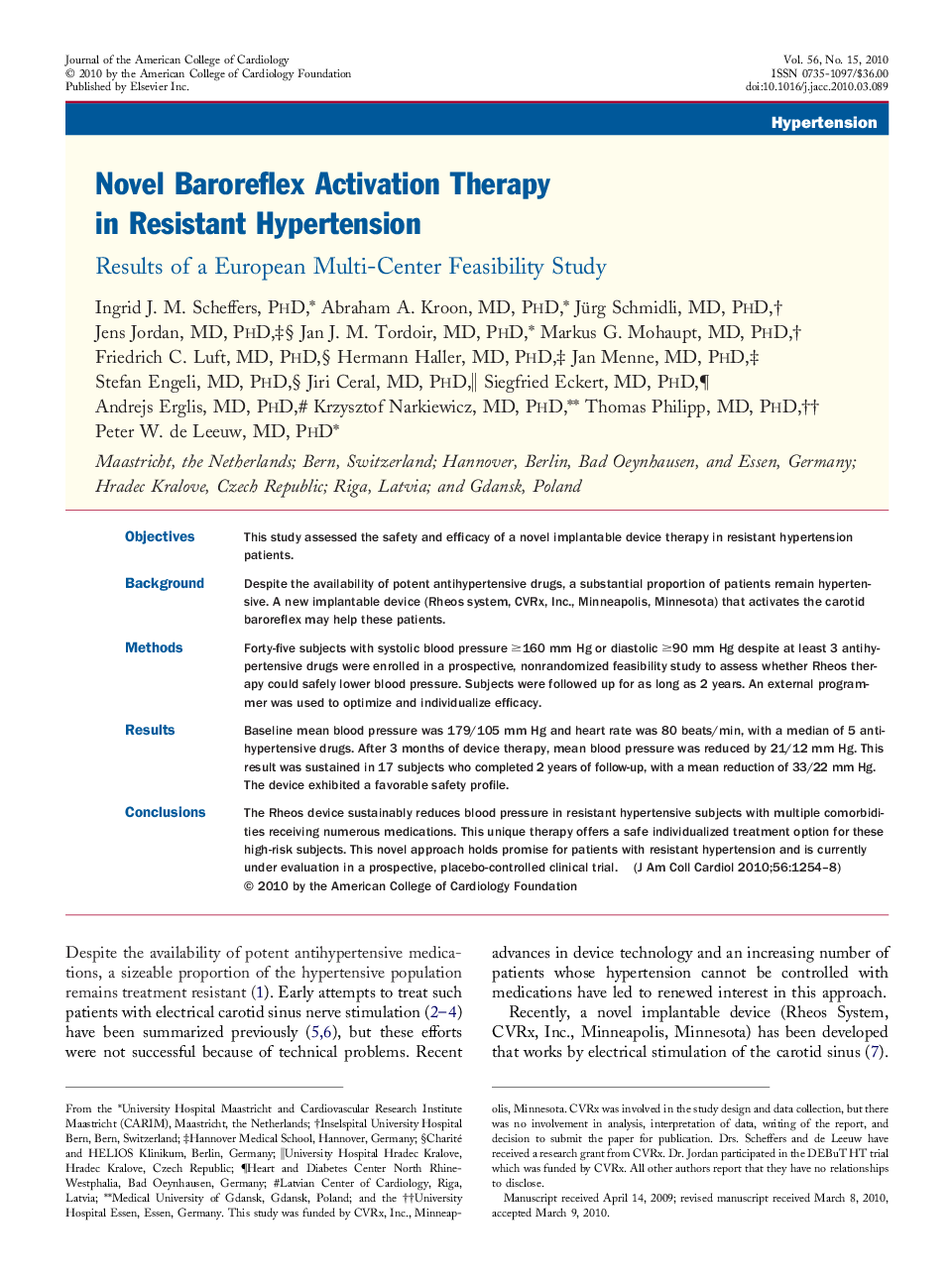| Article ID | Journal | Published Year | Pages | File Type |
|---|---|---|---|---|
| 2948968 | Journal of the American College of Cardiology | 2010 | 5 Pages |
ObjectivesThis study assessed the safety and efficacy of a novel implantable device therapy in resistant hypertension patients.BackgroundDespite the availability of potent antihypertensive drugs, a substantial proportion of patients remain hypertensive. A new implantable device (Rheos system, CVRx, Inc., Minneapolis, Minnesota) that activates the carotid baroreflex may help these patients.MethodsForty-five subjects with systolic blood pressure ≥160 mm Hg or diastolic ≥90 mm Hg despite at least 3 antihypertensive drugs were enrolled in a prospective, nonrandomized feasibility study to assess whether Rheos therapy could safely lower blood pressure. Subjects were followed up for as long as 2 years. An external programmer was used to optimize and individualize efficacy.ResultsBaseline mean blood pressure was 179/105 mm Hg and heart rate was 80 beats/min, with a median of 5 antihypertensive drugs. After 3 months of device therapy, mean blood pressure was reduced by 21/12 mm Hg. This result was sustained in 17 subjects who completed 2 years of follow-up, with a mean reduction of 33/22 mm Hg. The device exhibited a favorable safety profile.ConclusionsThe Rheos device sustainably reduces blood pressure in resistant hypertensive subjects with multiple comorbidities receiving numerous medications. This unique therapy offers a safe individualized treatment option for these high-risk subjects. This novel approach holds promise for patients with resistant hypertension and is currently under evaluation in a prospective, placebo-controlled clinical trial.
